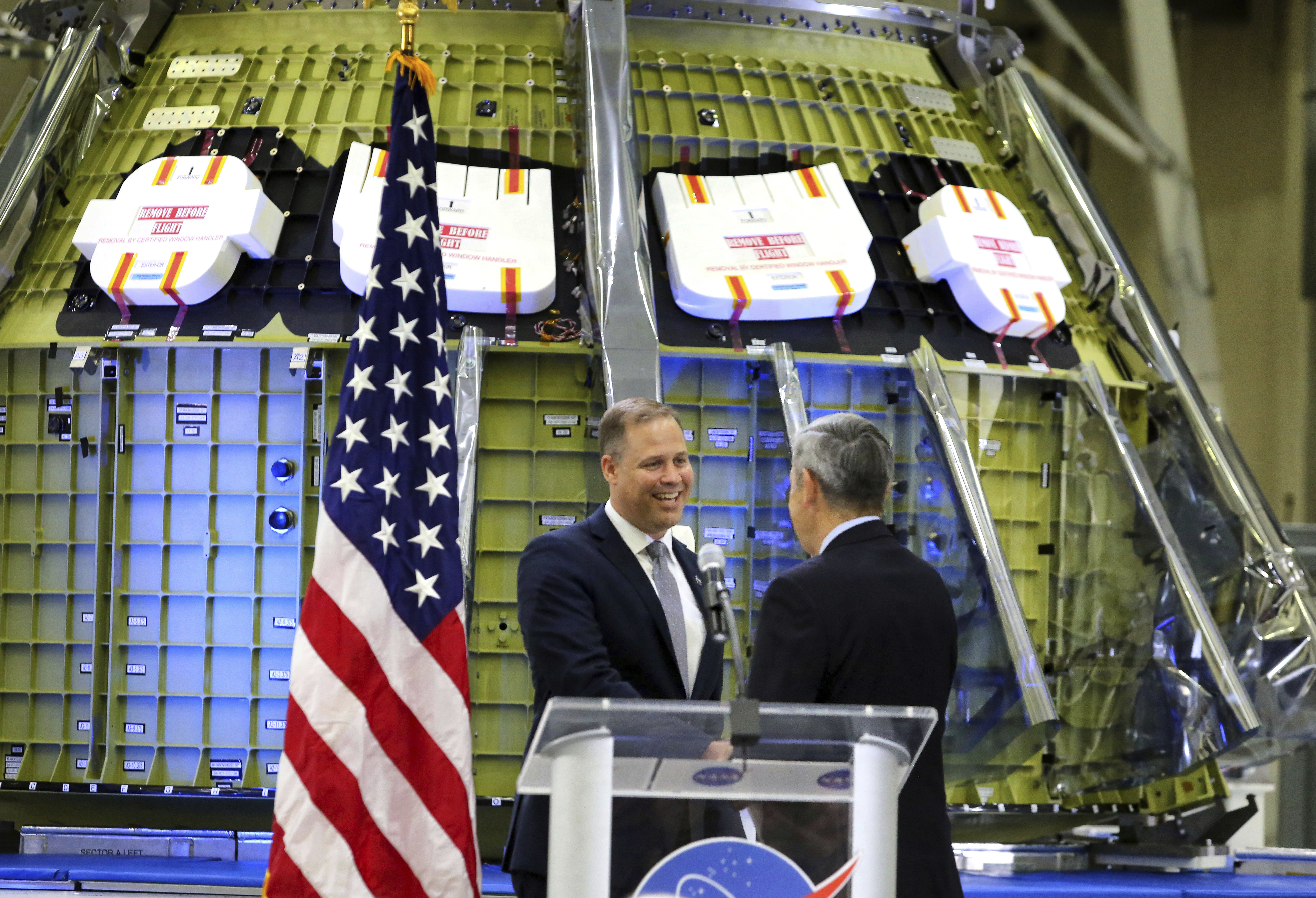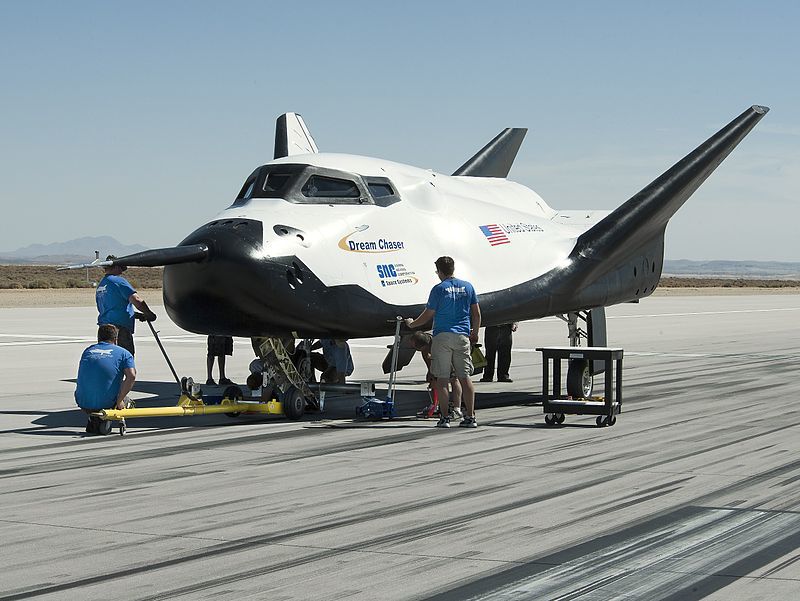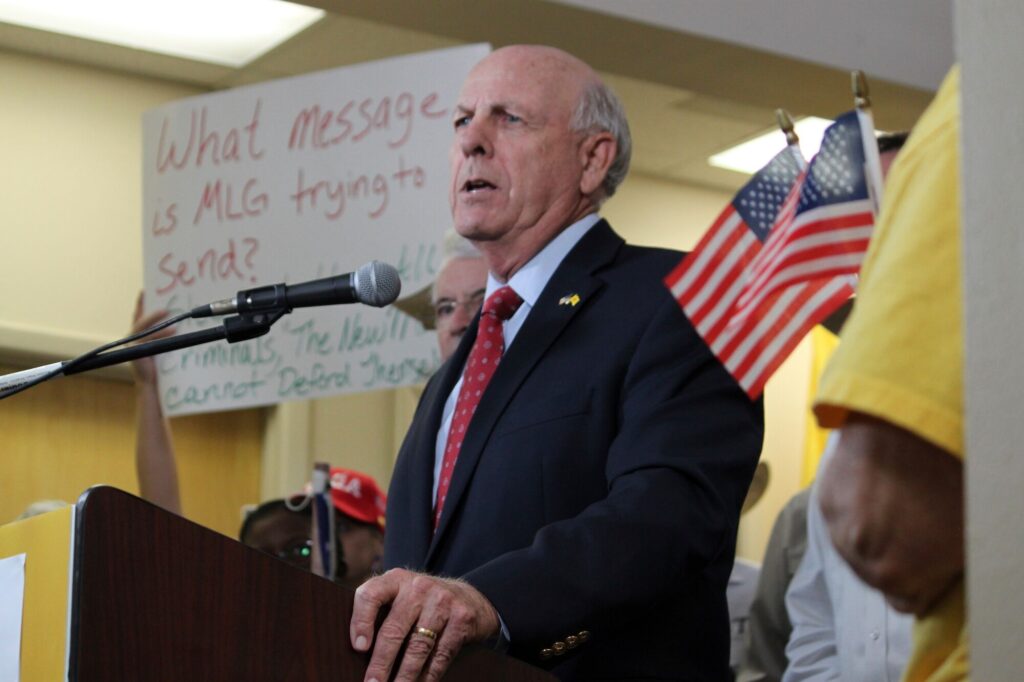Plans to expand space program create hope for a bigger Colorado role (VIDEO)

WASHINGTON — Federal officials laid out a plan to expand commercial space travel before U.S. Sen. Cory Gardner and other lawmakers Wednesday while Colorado political leaders try to position the state to benefit from growing opportunities in the final frontier.
Potentially most important for Colorado was a plan for managing space traffic described at a hearing of the Senate Commerce, Science and Transportation Committee by Kevin O’Connell, director of space commerce for the National Oceanic and Atmospheric Administration. Gardner, R-Colorado, is a member of the committee.
O’Connell said it would be “the nation’s first comprehensive policy on space traffic management.” In essence, the system would be an air traffic control system raised into Earth’s orbit.
It would be developed jointly by the departments of defense, commerce and NASA, he said.
> RELATED: Colorado is helping NASA get its mojo back
Although O’Connell did not say where the space traffic management system would be headquartered, his description of the military part of the program bore similarities to the U.S. Space Command that operated at Peterson Air Force Base in El Paso County from 1985 to 2002. Peterson is currently home of the Air Force Space Command.
The 2019 National Defense Authorization Act calls for reestablishment of the U.S. Space Command to lead the nation’s space-based military program.
The annual defense spending bill did not announce a location for the reestablished U.S. Space Command, which prompted the Colorado delegation to Congress and Gov. Jared Polis on March 8 to urge the Defense Department to choose the Centennial State.
In a letter to acting U.S. Secretary of Defense Patrick Shanahan, the state leaders wrote, “As the epicenter of national security space, Colorado is the prime location to house national efforts to ensure continued U.S. technological superiority, global leadership and capabilities in space.”
The U.S. Space Command in Colorado “will capitalize on Colorado’s existing military and intelligence missions and infrastructure to swiftly and comprehensively ensure space superiority over actors like Russia and China,” the letter said.
Polis and the Colorado delegation invited Shanahan to visit Colorado to see its “nexus of national security space, industry, workforce and innovation.”
More than 27,000 private sector and 28,000 military aerospace jobs are located in Colorado, according to the letter.
More detail for a space traffic management program can be found in a recent directive from President Donald Trump to government agencies that would participate in it. The directive orders the defense and commerce departments to provide space flight safety data to civil and commercial users by 2024.
The data would be taken from newly developed sensors and analytical tools. It also would invite partnerships with allied nations and private corporations.
Hazards the space traffic management system would seek to avoid include military threats and collisions between satellites and orbital debris from previous space flights.
Colorado is home to much commercial space activity. Centennial is headquarters to United Launch Alliance, the government’s primary launcher of satellites. Colorado also is the home of defense giant Lockheed Martin Co.’s space division in Jefferson County, where the deep-space Orion crew vehicle is being developed, and a Sierra Nevada Corp. facility in Louisville where the Dream Chaser space plane is being built.
Gardner, who co-signed the letter to Shanahan, asked NASA Administrator Jim Bridenstine at Wednesday’s hearing whether the U.S. space program was “healthy” enough for its plans to expand commercialization and crewed missions beyond earth’s orbit — something that hasn’t happened since the Apollo 17 mission to the moon 47 years ago.
“I would say we are very healthy,” Bridenstine said. “I would also say there is always room for more capacity.”
Gardner asked for assurances that U.S. industries would lead the American commercialization of space, such as spacecraft built in the United States. Bridenstine responded that he would try to ensure “American leadership.”
The NASA administrator also discussed plans for a return to the moon, first with drones and later with astronauts for a prolonged presence. Discoveries since the manned Apollo flights of the 1960s and 1970s, such as finding large amounts of frozen water on the moon, create opportunities for a sustainable human habitation, Bridenstine said.
He said he anticipated more participation from other countries for a new manned moon mission.
“They are extremely excited about partnering with us in these endeavors,” Bridenstine told the Republican Colorado senator.
RELATED:
> 2 Colorado companies among 9 to compete for next moon landing
> Colorado-built Dream Chaser space plane turning into reality
> US Air Force set to launch 1st next-generation GPS satellite, built in Colorado
> NASA spacecraft built near Denver arrives at ancient asteroid, its 1st visitor
> Trump wants a man on the moon again, Pence tells space summit in Colorado Springs















